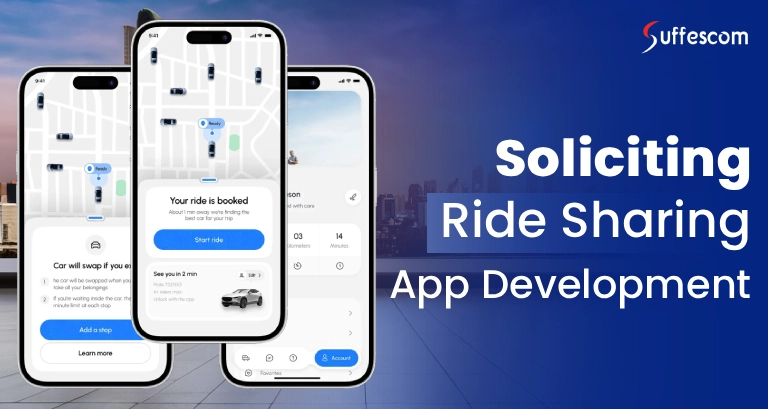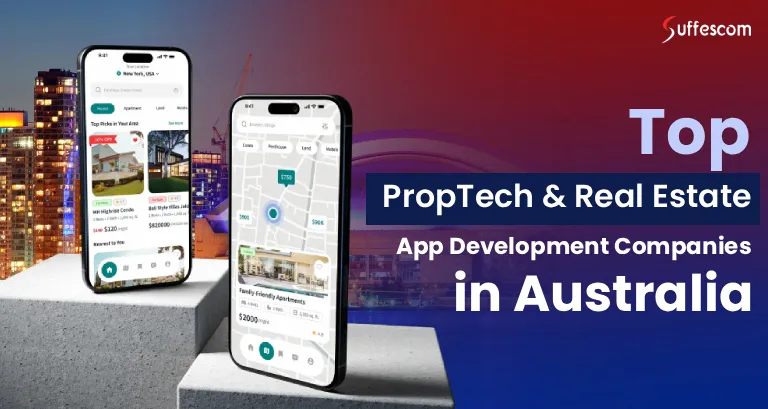Cost To Develop An App Like Gauth: AI Homework Helper

The education industry is undergoing a massive transformation with the integration of artificial intelligence (AI). AI-powered study companion apps like Gauth have revolutionized how students complete their homework, understand complex subjects, and enhance their academic performance. These apps utilize AI-driven algorithms to provide instant solutions, step-by-step explanations, and subject-specific tutoring, making learning more interactive and efficient.
With the increasing adoption of AI in education, entrepreneurs and businesses are looking to develop similar applications that cater to the growing demand. However, to develop an App Like Gauth involves significant costs and technical expertise. This comprehensive guide will explore what it takes to create an app like Gauth, its key features, the development process, associated costs, factors influencing the budget, and monetization strategies to make the app profitable.

What is Gauth: AI Study Companion App?
Gauth is an AI-powered study companion app designed to assist students with homework by providing real-time solutions and detailed explanations. The app supports multiple subjects, including Mathematics, Science, Literature, and more, enabling students to get accurate and instant answers.
Features of Gauth
Gauth has gained popularity due to its accuracy, ease of use, and AI-driven personalized learning approach. Developing a similar app can be highly profitable, given the increasing dependency of students on AI-driven educational tools.
- AI-Based Homework Solver: The app scans homework questions and generates precise answers.
- Step-by-Step Explanations: Instead of just providing answers, the app explains each step to enhance understanding.
- 24/7 Availability: Students can access the app anytime for academic assistance.
- Support for Handwritten and Typed Queries: Gauth uses Optical Character Recognition (OCR) to interpret and solve handwritten and typed problems.
- Multilingual Support: The app caters to students worldwide by offering solutions in multiple languages.
- Interactive AI Chatbot: A conversational chatbot helps answer follow-up questions and provides further explanations.
Key Market Takeaways for AI Study Companion App
The education technology (EdTech) market is booming, and AI-driven learning apps are at the forefront of this revolution. The increasing adoption of AI in education has opened up new opportunities for app developers and businesses.
Market Insights:
Given the current market trends, investing in an AI study companion app like Gauth can be a game-changer for businesses looking to enter the EdTech industry.
- Growth Potential: The global AI in education market is expected to surpass $20 billion by 2027, growing at a CAGR of over 40%.
- User Base Expansion: More students, parents, and educators rely on AI-powered tools for efficient learning and homework assistance.
- Rise in Remote Learning: Post-pandemic, online education and AI study companions have seen a surge in adoption.
- Advancements in AI: The introduction of AI models like GPT-4, LLaMA, and other NLP-based models has enhanced the efficiency of AI-powered education tools.
A Perfect Time to Build an AI Study Companion App Like Gauth
The increasing integration of AI in education makes now the ideal time to develop an AI-powered study companion app. Given these factors, investing in an AI-powered study companion app like Gauth can be a highly profitable business move. Here are several factors indicate that launching such an app today would be highly beneficial:
1. Growing Demand for AI-Powered Education Solutions
Students, educators, and parents actively seek AI-based tools that simplify learning. The ability to get instant answers with detailed explanations has made AI study companion apps necessary.
2. Investments in EdTech Startups
EdTech startups are securing substantial funding from investors. The AI education market attracts significant capital, making it easier for businesses to scale AI-powered apps.
3. Advancements in AI Technology
The availability of advanced AI models, natural language processing (NLP), and optical character recognition (OCR) makes it easier to develop highly efficient AI study companion apps.
4. Lucrative Monetization Opportunities
AI study companion apps offer multiple revenue streams, including subscription plans, premium features, in-app purchases, and ad-based models.
Develop Your AI Study Companion To Help Students Worldwide!
Unlock instant homework solutions, step-by-step explanations, and personalized learning recommendations with an AI-powered study assistant. Whether math, science, or literature, get accurate answers anytime, anywhere.
How Does an App like Gauth App Work?
An AI study companion app like Gauth operates through AI-driven algorithms that analyze student queries and generate accurate solutions. The app leverages machine learning, OCR, and NLP to understand and solve problems effectively. Here is the functionality of Gauth App:
1. User Inputs a Question
Students can enter their queries using text, voice, or images. The text input allows users to type their questions manually, while the voice input leverages speech-to-text (STT) technology to convert spoken queries into text. For image-based inputs, students can take a photo of a handwritten or printed problem, and Optical Character Recognition (OCR) extracts the text for processing. The app may also enhance images by adjusting brightness and contrast to improve text recognition accuracy, ensuring that even unclear handwriting is accurately interpreted.
2. AI Recognizes the Query
Once the input is received, the app's AI scans categorizes and interprets the question to understand its context and subject. It identifies whether the problem belongs to mathematics, physics, chemistry, or another subject and classifies it into subcategories like algebra, calculus, or geometry. Natural Language Processing (NLP) and machine learning algorithms analyze sentence structures, keywords, and patterns to determine the question type accurately. OCR extracts relevant text for image-based queries, which AI then processes to match with known problem types and structures.
3. Solution Generation
After recognizing the problem, the AI algorithm provides an instant answer and a detailed step-by-step explanation. The system breaks down complex problems into simpler steps, helping students understand the logic behind the solution. The AI ensures accuracy in math and physics by following established problem-solving frameworks and validating calculations. The AI retrieves relevant explanations from its knowledge base or dynamically generates responses based on trained models for conceptual questions. The step-by-step approach ensures students grasp each stage of the problem-solving process.
4. Interactive AI Chatbot Assistance
The app includes an interactive AI chatbot that allows students to ask follow-up questions for further clarification to enhance learning. If a user doesn't understand a particular step, the chatbot provides additional explanations, alternative problem-solving methods, and real-world examples to reinforce understanding. It can also suggest related questions, guiding students toward a deeper comprehension of the subject. The chatbot uses conversational AI to ensure a personalized and engaging experience, making learning more interactive and adaptive to each student's needs.
5. Personalized Learning Recommendations
The app continuously tracks users' queries and learning progress, analyzing their strengths and weaknesses. Based on their performance, it suggests personalized study materials, including video tutorials, practice exercises, and revision notes, to help them improve in weaker areas. The AI adapts recommendations over time, ensuring students receive targeted learning resources aligning with their progress. Gamification elements such as quizzes, badges, and progress tracking motivate students to consistently learn.
Key Features to Build an AI Study Companion App Like Gauth
Your AI-powered study companion app must incorporate essential features that enhance the user experience to compete with Gauth and attract a strong user base.
1. AI-Powered Homework Solver
Uses machine learning and NLP algorithms to interpret and solve queries. Supports various subjects, including Mathematics, Science, and English.
2. Step-by-Step Explanations
Provides detailed explanations to help students understand concepts instead of just offering direct answers. Break down complex solutions into simpler steps.
3. Image Recognition for Handwritten Problems
Uses OCR to analyze and extract text from handwritten or printed material. Allows students to take a picture of their question for instant solutions.
4. AI Chatbot for Tutoring
Engages users with AI-driven conversations to clarify doubts. Provides subject-specific tutoring and real-time assistance.
5. Voice Input & Speech Recognition
Enables students to ask questions via voice commands. Makes the app more accessible for users with disabilities.
6. Multi-Language Support
With the help of multi-language support, app providers can expand user reach by offering learning assistance in multiple languages. Students from any region or country can access the app by choosing their preferred language.
7. Personalized Learning Paths
Users can track students' progress and recommend study materials for improvement.
8. Progress Tracking & Analytics
Tutors can monitor students' learning patterns and provide performance insights.
The Development Process for an AI Study Companion App Like Gauth
- Planning & Research - Define the app's purpose, market analysis, and target audience.
- UI/UX Design - Create a user-friendly and engaging interface.
- AI Model Development - Implement machine learning and NLP for homework assistance.
- Backend & Frontend Development - Build a scalable and efficient app architecture.
- Testing & QA - Ensure bug-free functionality with extensive testing.
- Deployment & Maintenance - Launch the app and provide ongoing updates.
Cost of Developing an AI Study Companion App Like Gauth
The cost to build an app like Gauth depends on various factors. However, here is the estimated distribution of cost.
| Development Stage | Estimated Cost (USD) |
| UI/UX Design | $5,000 - $15,000 |
| AI Model Development | $20,000 - $50,000 |
| Frontend & Backend Development | $30,000 - $70,000 |
| Image & Text Recognition | $15,000 - $30,000 |
| Testing & QA | $10,000 - $20,000 |
| Deployment & Maintenance | $10,000 - $20,000 |
Total estimated cost to develop an app like Gauth: 10,000 to 200,000+.
Factors Affecting the Cost To Build An App Like Gauth
Several cost factors influence the develop an App like Gauth:

1. AI Model Complexity
The complexity of the AI model significantly affects the development cost of AI homework helper. A basic AI model with pre-trained datasets is cheaper, while a custom-built deep learning model trained on large datasets requires high-end infrastructure and skilled AI engineers, increasing costs. The choice between using OpenAI's GPT, Google's Gemini, or a custom NLP model impacts expenses, as licensing fees, training time, and computational power vary. AI models require ongoing optimization and fine-tuning, adding long-term costs beyond initial development.
2. Feature Set
A simple app with text-based AI assistance is less expensive than one with features like:
- Chatbots for real-time interactions.
- Image recognition to analyze handwritten or printed text (requiring OCR technology).
- Voice processing to enable audio-based interactions.
Features such as multi-language support, step-by-step explanations, or interactive solutions add further development complexity and costs.
3. App Platform
Developing an AI homework solver for iOS, Android, or both affects costs. A native app (built separately for each platform using Swift for iOS and Kotlin for Android) costs more than a cross-platform app (built using frameworks like React Native or Flutter). Cross-platform development is cost-effective but may have performance trade-offs compared to fully native apps. Maintenance and updates vary; supporting multiple platforms means additional work and cost.
4. Development Team Location
Due to higher labor costs, hiring a development team to develop an app like Gauth in the US, UK, or Western Europe is significantly more expensive than in India, Eastern Europe, or South America. AI development company in India offer skilled expertise at lower rates, reducing costs while maintaining quality. The choice between freelancers, in-house teams, or outsourcing to an agency also affects the budget.
5. Third-Party API Integration
Using third-party APIs like Google Vision API, OpenAI's GPT, AWS Rekognition, or Microsoft Azure's AI services for OCR, NLP, and AI processing adds licensing and usage costs. Subscription-based APIs charge fees based on usage, meaning higher traffic leads to higher operational costs. Custom-built solutions can reduce reliance on third-party APIs but require significant upfront investment in development.
Build Your Own AI Study App—Let's Talk!
Are you thinking of developing an AI-powered education app like Gauth? Our expert team can help you bring your vision to life with cutting-edge AI, OCR, and NLP solutions. Contact us today for a free consultation and cost estimate!
Monetization Strategies for AI Study Companion App Like Gauth
To make your homework AI solver app profitable, consider these monetization strategies:
- Subscription Model – Monthly or yearly premium plans for unlimited access.
- In-App Purchases – Pay-per-use solutions for complex problems.
- Advertisements – Monetize through banner ads or video ads.
- Freemium Model – Offer basic features for free with premium upgrades.
- Affiliate Marketing – Partner with educational platforms and offer referral commissions.
Conclusion
Building an AI help with homework companion app like Gauth is a lucrative opportunity, given the rising demand for AI-powered learning tools. While the cost to build app Like Gauth ranges from $10,000 to $200,000+, the investment is worthwhile due to multiple monetization possibilities. You can create a successful and profitable education app by incorporating AI-driven solutions and an engaging user experience.
If you're ready to develop your AI study companion app, partnering with an experienced app development company will help you efficiently bring your vision to life.
FAQs
1. How much does developing an AI-powered study companion app like Gauth cost?
The development cost of a homework AI solver varies based on the complexity of the AI model, features, platform (iOS, Android, or both), team location, and third-party API integrations. On average, it ranges from $10,000 to $200,000+ and covers UI/UX design, AI model development, text and image recognition, and testing.
2. How long does developing an AI homework helper app take?
The development timeline of an AI Homework Helper depends on the app's complexity and feature set. A basic AI study app may take 4-6 months, while an advanced version with OCR, multilingual support, and AI chatbots could take 9-12 months due to extensive AI model training and optimization.
3. What are the key features to include in an AI-powered study companion app?
Essential features include an AI-powered homework solver, step-by-step explanations, OCR for handwritten problems, an interactive chatbot, voice input, multilingual support, and personalized learning recommendations. These features enhance user experience and engagement.
4. Can AI study companion apps work offline?
Basic functionalities like previously saved explanations and practice problems can work offline. However, real-time AI-generated solutions, chatbot interactions, and OCR processing typically require an internet connection since they rely on cloud-based AI models and databases.







